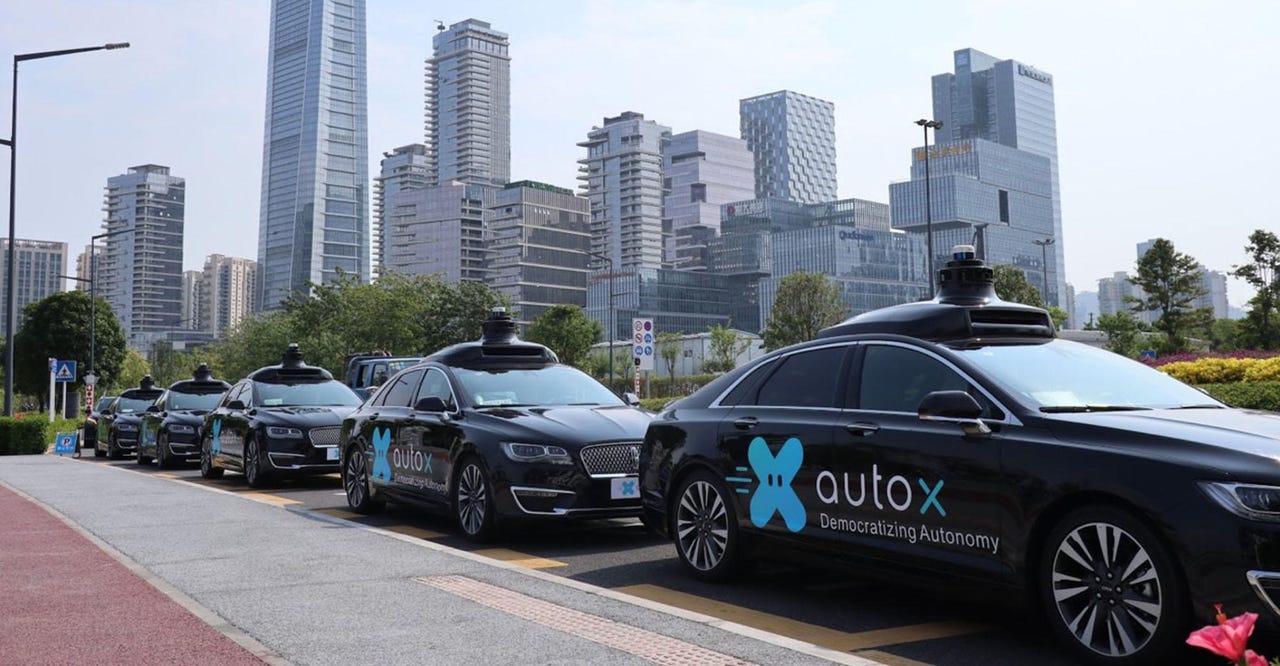Alibaba's map product allows riders to hail RoboTaxis


On the heels of opening its "RoboTaxi Gigafactory" in Shanghai, self-driving car developer AutoX is partnering with Alibaba's map product, Amap, to bring self-driving vehicles onto China's ride-hailing network. It's part of a sweeping autonomous rideshare rollout by AutoX that's helping put China ahead in autonomous ridesharing.
Riders will be able to hail rides with 'AutoX RoboTaxi' through the Amap smartphone app the same way they use regular ride-hailing services. This marks the first time in China that a RoboTaxi service has become available on a major ride-hailing platform.
"The seamless combination of autonomous and human-driving fleets is crucial for the adoption and commercialization of self-driving technology," says AutoX CEO Dr. Jianxiong Xiao, often called Professor X. "The service area of autonomous vehicles is an ever-increasing yet geo-fenced region, and the fleet size takes time to grow. This combination is a must-have for an autonomous driving company to be able to provide a truly useful service for all riders."
Since coming out of stealth in 2018, AutoX has punched well above its weight and beaten rival Waymo for a series of L4 autonomy firsts.
AutoX's self-driving vehicles can pick up and drop off passengers at any location requested, which stands in contrast to services that require riders to hail autonomous vehicles at dedicated hubs. Well timed to the global COVID-19 pandemic, a streamlined identity confirmation process is completely touchless. RoboTaxis don't require drivers, mitigating risk of spreading disease during heavy rideshare use.
China has a headstart over countries like the U.S. in part because of rapid adoption of technologies like 5G. Shanghai has invested heavily in a state-of-the-art vehicle-to-infrastructure (V2X) system that's given self-driving car adoption a significant boost. The V2X infrastructure was built as part of China's New Infrastructure Initiative.
AutoX is set to operate 100 self-driving vehicles on public roads in Shanghai.